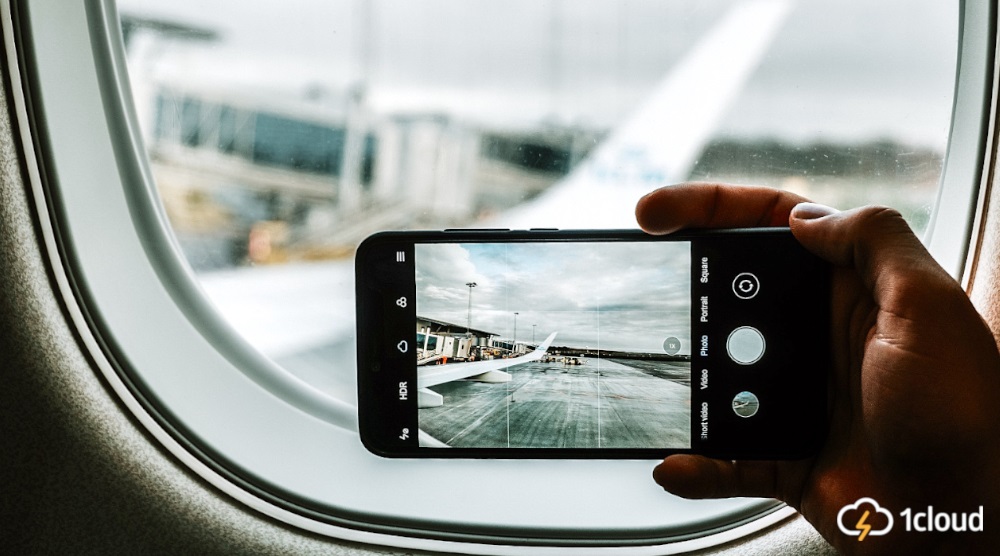Inspection of electronic devices at the border - a necessity or a violation of human rights?
Checking smartphones and laptops at airports is becoming the norm for many countries. Someone considers it a necessity, others - the intervention of personal life. We discuss the situation, the latest changes on the topic and tell you how to act in the new circumstances.

/ Unsplash / Jonathan Kemper
Only in 2017 in the US, customs services conducted 30 thousand inspections of devices, which is 58% more than a year earlier. In 2018, this figure increased, and legislative regulation is changing in the direction of granting more and more powers for inspection. Not so long ago, US customs officers received the right to read private messages and even send this information to the border guard servers — all without a warrant.
')
At the end of May, the new requirements for applying for a US visa also became known . Applicants will have to indicate in the application data on accounts in social networks and personal phone numbers over the past five years. All information will be checked by special services. The situation with visas has already been discussed in one of the materials on Habré.
Check electronic devices not only on the US border. In China, customs officers look at the correspondence, photos, videos and documents entering the country to establish the purpose of the visit. A similar situation exists in Canada - airport employees are viewing posts on social networks, call history and browser.
Any state considers the border as a source of increased danger. Customs and airline officials say that gadget inspections are carried out for security purposes and “allow us to enforce the laws in countries”.
At the same time, experts note that the situation is not as bad as it is described. Every year, 400 million people cross the US border. However, only a few tens of thousands of inspections of gadgets are carried out during the year, which is “not so much”.
It is believed that this approach violates the rights of people to the secrecy of correspondence. Two years ago, ten US citizens (among whom was a NASA engineer ) even sued the Department of National Security and Customs Service. In their statement, they noted that the inspection of electronic devices at the border is contrary to the first and fourth amendments to the constitution.
Actively against the “searches of gadgets” are also large companies, whose employees have to fly on business trips. They note that such practices can lead to compromise of the organization’s confidential data, as people increasingly use personal laptops and smartphones to work. At Basecamp, they even developed a special checklist , which all employees of the company are required to follow when traveling abroad. It spelled out the methods and tools that should be used to protect information.

/ Unsplash / Erik Odiin
Initiatives to limit the powers of customs officers are politicians. Several US senators proposed a bill that would prohibit the inspection of gadgets at the border, without any valid reason. Similar calls for a review of legislation are heard in Canadian society.
Use strong passwords for each service or application and exit all accounts before crossing the state border. Password protection is the operating system itself. This "will play into the hands" in the event that the device is stolen.
Create backup copies of data and remove all sensitive information from disks using special utilities. You can use the open source tool BleachBit . It erases documents, cleans the browser and file preview images.
Upload your data to the cloud, it will be safer there. For example, in the US, border guards can view stored files on the device, but they do not have rights to check data in the cloud.
Our posts on Habré and in the social. networks:
 Benchmarks for Linux servers: 5 open tools
Benchmarks for Linux servers: 5 open tools
 How to check cookies for compliance with GDPR - a new open tool will help
How to check cookies for compliance with GDPR - a new open tool will help
 Everyone is talking about PD leaks - how will the IaaS provider help?
Everyone is talking about PD leaks - how will the IaaS provider help?
 Backups: backup short
Backups: backup short
 "Rule 3-2-1" when backing up - how does it work?
"Rule 3-2-1" when backing up - how does it work?

/ Unsplash / Jonathan Kemper
The problem of confidentiality at the border
Only in 2017 in the US, customs services conducted 30 thousand inspections of devices, which is 58% more than a year earlier. In 2018, this figure increased, and legislative regulation is changing in the direction of granting more and more powers for inspection. Not so long ago, US customs officers received the right to read private messages and even send this information to the border guard servers — all without a warrant.
')
To guarantee the security of personal data from access by third parties in this case is impossible. Literally at the beginning of the month it became known that the database of the customs service had been hacked. Photographs and passport numbers of tens of thousands of travelers have become prey to intruders.
At the end of May, the new requirements for applying for a US visa also became known . Applicants will have to indicate in the application data on accounts in social networks and personal phone numbers over the past five years. All information will be checked by special services. The situation with visas has already been discussed in one of the materials on Habré.
Check electronic devices not only on the US border. In China, customs officers look at the correspondence, photos, videos and documents entering the country to establish the purpose of the visit. A similar situation exists in Canada - airport employees are viewing posts on social networks, call history and browser.
Pros and cons
Any state considers the border as a source of increased danger. Customs and airline officials say that gadget inspections are carried out for security purposes and “allow us to enforce the laws in countries”.
At the same time, experts note that the situation is not as bad as it is described. Every year, 400 million people cross the US border. However, only a few tens of thousands of inspections of gadgets are carried out during the year, which is “not so much”.
It is believed that this approach violates the rights of people to the secrecy of correspondence. Two years ago, ten US citizens (among whom was a NASA engineer ) even sued the Department of National Security and Customs Service. In their statement, they noted that the inspection of electronic devices at the border is contrary to the first and fourth amendments to the constitution.
Actively against the “searches of gadgets” are also large companies, whose employees have to fly on business trips. They note that such practices can lead to compromise of the organization’s confidential data, as people increasingly use personal laptops and smartphones to work. At Basecamp, they even developed a special checklist , which all employees of the company are required to follow when traveling abroad. It spelled out the methods and tools that should be used to protect information.
“I have a negative attitude to any restriction of freedoms, and the right to privacy of correspondence is the fundamental right of any person. Compromising commercial data that falls on employees' personal smartphones is a serious problem that is becoming more and more urgent as employees are increasingly using instant messengers for working correspondence. Therefore, all companies need to pay attention to issues related to the security of corporate data.
In 1cloud, we are working on information security policies for employees when working with personal devices - we will implement them and test them in the near future, ”commented Sergey Belkin, head of development at IaaS provider 1cloud .

/ Unsplash / Erik Odiin
Initiatives to limit the powers of customs officers are politicians. Several US senators proposed a bill that would prohibit the inspection of gadgets at the border, without any valid reason. Similar calls for a review of legislation are heard in Canadian society.
“I think that in the case of real interest, the secret services and before could get access to the information they need (in one way or another, including without the user's knowledge), and these new normative acts only simplify the procedure and establish more explicit rules of the game that should consider citizens when planning certain activities. If I were engaged in “something like this” that might be of interest to law enforcement agencies (of any countries), then the phone and laptop would not be included in the first ten devices, where I would decide to store such information. The same goes for storing data in any public cloud services (regardless of their jurisdiction), ”says Alex Boomburum .
findings
Use strong passwords for each service or application and exit all accounts before crossing the state border. Password protection is the operating system itself. This "will play into the hands" in the event that the device is stolen.
Create backup copies of data and remove all sensitive information from disks using special utilities. You can use the open source tool BleachBit . It erases documents, cleans the browser and file preview images.
Upload your data to the cloud, it will be safer there. For example, in the US, border guards can view stored files on the device, but they do not have rights to check data in the cloud.
“In my opinion, the thing [inspection of gadgets at the border] is absolutely useless. Those who have something to hide will store data, for example, on a server, where they will log in with their password through a browser. Browse the gadget - it just will not be anything special.
And even guessing that this server exists at all is simply impossible. Personally, I calmly relate to such things and somehow do not particularly prepare. What really annoys me is the tradition of some airports - to demand to get a laptop from a bag, ”comments Timofei Shikolenkov, founder of the Two Sensei Online University.
Our posts on Habré and in the social. networks:
 Benchmarks for Linux servers: 5 open tools
Benchmarks for Linux servers: 5 open tools  How to check cookies for compliance with GDPR - a new open tool will help
How to check cookies for compliance with GDPR - a new open tool will help  Everyone is talking about PD leaks - how will the IaaS provider help?
Everyone is talking about PD leaks - how will the IaaS provider help?  Backups: backup short
Backups: backup short  "Rule 3-2-1" when backing up - how does it work?
"Rule 3-2-1" when backing up - how does it work?Source: https://habr.com/ru/post/456872/
All Articles